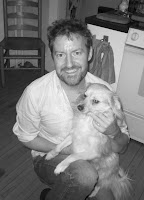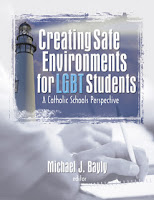 So say three senior fellows of the Woodstock Theological Center in Washington: Fr. Thomas J. Reese, Dolores R. Leckey and Fr. Raymond Kemp. The three spoke last month at at “The Future of the Church: A Woodstock Forum on Sources of Hope,” held at St. Joseph’s University in Philadelphia. Following is a brief excerpt from Jerry Filteau's coverage of the event in the January 4 issue of The National Catholic Reporter.
So say three senior fellows of the Woodstock Theological Center in Washington: Fr. Thomas J. Reese, Dolores R. Leckey and Fr. Raymond Kemp. The three spoke last month at at “The Future of the Church: A Woodstock Forum on Sources of Hope,” held at St. Joseph’s University in Philadelphia. Following is a brief excerpt from Jerry Filteau's coverage of the event in the January 4 issue of The National Catholic Reporter.______________________________
Panelists at a recent Woodstock forum in Philadelphia urged lay Catholics to grab the reins and set the course for the church’s future.
“We are becoming a do-it-yourself church” for the laity, said Jesuit Fr. Thomas J. Reese, one of three senior fellows of the Woodstock Theological Center in Washington who spoke at “The Future of the Church: A Woodstock Forum on Sources of Hope,” held at St. Joseph’s University in Philadelphia Dec. 5.
The U.S. Catholic hierarchy today is fearful and defensive, a far cry from the collaborative, pastorally transformed hierarchy that emerged during and after the Second Vatican Council, said Dolores R. Leckey, former longtime head of the U.S. Conference of Catholic Bishops’ Secretariat for Laity, Family, Women and Youth, and a noted writer on spirituality.
It’s up to the laity to take responsibility for where the church goes in the years to come . . .
[Reese] cited the return to biblical scholarship and spirituality among the major causes for hope in the Catholic church today.
The Catholic focus on social justice attracts young Catholics, “especially when this work is seen not just as kind of an appendix to Christianity, as being a Catholic, but is integrated into our spirituality, as part of who we are, so it becomes part of who we are as Christians – for many young Catholics this becomes attractive,” he said.
On the church’s immediate prospects for the future, “maybe God knows what she’s doing,” he said. “If you don’t have clergy, maybe the job’s yours.”
Leckey and Kemp struck similar notes on lay responsibility for the church’s future.
Leckey, who recently completed a book, The Laity and Christian Education, in the Paulist Press “Rediscovering Vatican II” series, said the Second Vatican Council in the 1960s is one of the chief reasons for her hope for the future of the church.
“What happened there was a monumental conversion of consciousness” among the world’s 2,500 Catholic bishops, she said, and one key area of that was recognition of the role of the laity, by virtue of their baptism, in the church’s mission of ministry and spreading the Gospel in the world.
She contrasted the conciliar view of the laity with the prevailing preconciliar view best expressed by Pope Pius X in the early 20th century when he said, “The one duty of the laity is to allow themselves to be led like a docile flock, to follow their pastors.”
Besides re-envisioning the church as the pilgrim people of God, the council stressed the universal call to holiness and changed the ongoing narrative of the church’s life, making it more biblically and liturgically centered, she said.
Today, she noted, 85 percent of the ministers in U.S. parishes are laity, most of them women.
To read Filteau's article in its entirety, click here.
Recommended Off-site Links:
Fr. Thomas Reese on All Things Hopeful – Colleen Kochivar-Baker (Enlightened Catholicism, January 5, 2011).
The Call of the Baptized: Be the Church, Live the Mission – Paul Lakeland (The Progressive Catholic Voice, September 19, 2010).
Creating a Liberating Church – Rosemary Radford Ruether (The Progressive Catholic Voice, July 15, 2010).
Who Is Responsible for Church Reform? – Paula Ruddy (The Progressive Catholic Voice, April 2008).
See also the previous Wild Reed posts:
Why the Bishops Are Being Ignored
A Time to Re-Think the Basis and Repair the Damage
"I Love the Radical Catholic Church"
To Whom the Future of the Catholic Church Belongs






















No comments:
Post a Comment